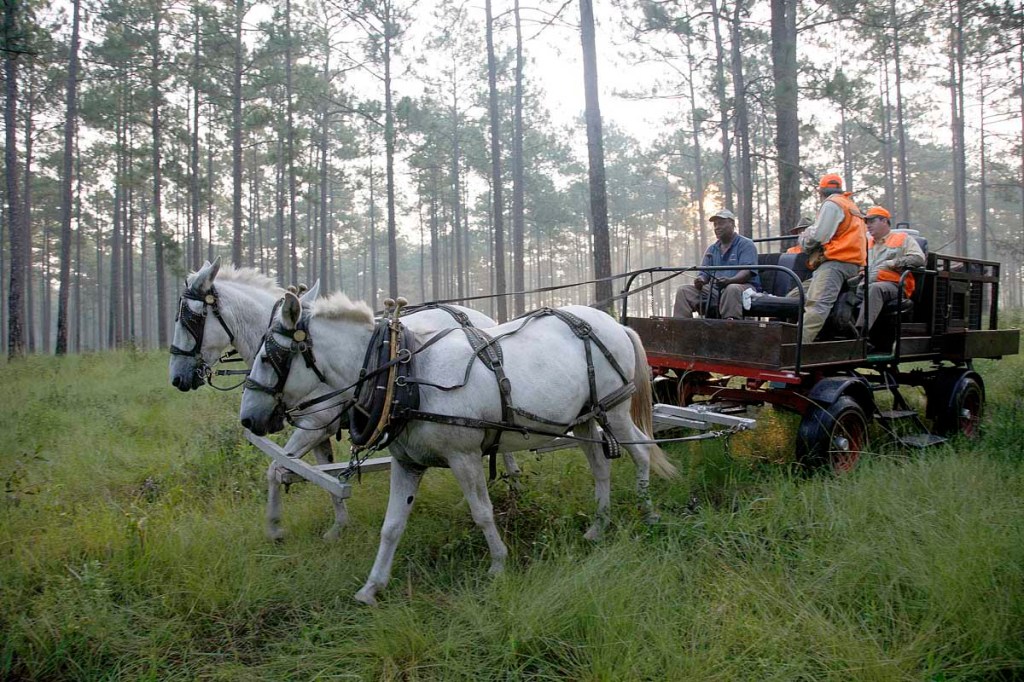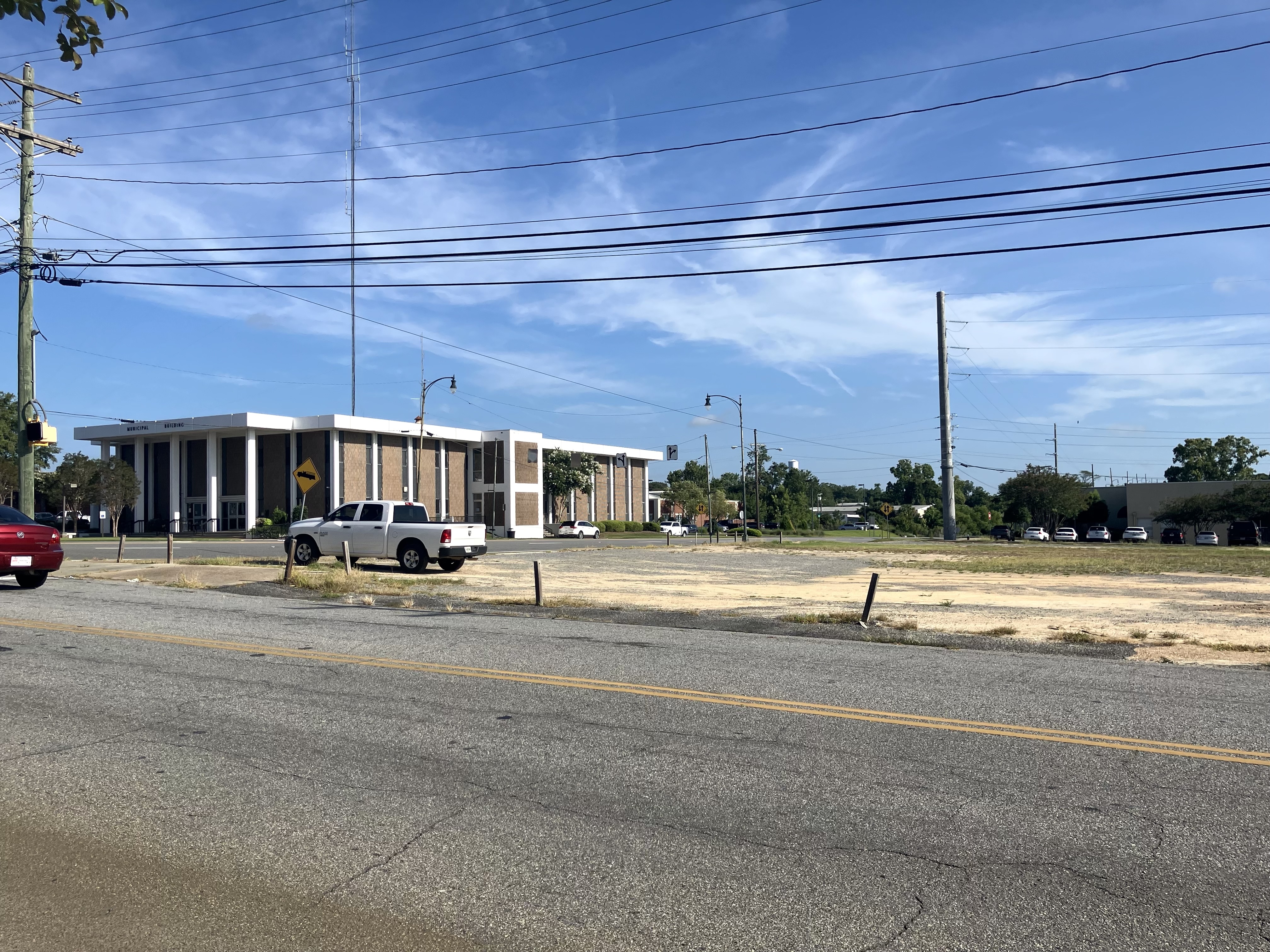Ashburn Hill Plantation for sale
Published 11:48 pm Saturday, October 30, 2010

- Mules pull a wagon of quail hunters at Ashburn Hill Plantation in this undated photo submitted by The Wright Group. Even the mule wagon will be sold during an auction Dec. 4 at the plantation.
When the TV announcer invites you to “own a piece of history,” you can bet what he’s selling is 90 percent hype.
Trending
But the signs going up on Lower Meigs Road are no hype. The Pidcock family’s Ashburn Hill Plantation is going up for auction, and a lot of history will be on the block.
William Warren Ashburn was not one of Colquitt County’s founders, but once he moved to Moultrie in 1886 he started making big footprints in the region.
“One of the first men to get a vision of Colquitt County’s future,” wrote The Moultrie Observer, “was Mr. W.W. Ashburn, a wealthy turpentine operator and merchant of Eastman.”
Among his contributions was the luring of the first railroad to Moultrie in 1893 and the organization of Moultrie Banking Company in 1896. He did so much for southwest Georgia that when Turner County organized its county seat, they named it Ashburn after him, even though he didn’t live there.
Ashburn’s daughter, Willie, married Frank Ramsey Pidcock in 1902. Pidcock was the son of James Nelson Pidcock Sr., who launched several rail lines and served in the U.S. House of Representatives from New Jersey. After his time in Washington, J.N. Pidcock moved to southwest Georgia and formed the Great Northern Railway.
Over the next hundred years, the Pidcocks were among the leaders of the Colquitt County community, owning railroads, serving on the boards of directors of many local agencies, and later moving into the tobacco industry.
Trending
Frank Pidcock Sr. spearheaded the drives to establish the Chamber of Commerce and the YMCA. He was chairman of the Board of Education for the Moultrie City Schools, deacon and chairman of the Board of Deacons of First Baptist Church, and a director and vice president of Moultrie Banking Company. He and his son were active in establishing Sunset Country Club in 1946.
C.W. Pidcock Sr., Frank’s brother, was one of the men who organized the Colquitt Hotel Corporation. He, C.W. Pidcock Jr. and William L. Pippin all served as directors of the Vereen Memorial Hospital.
C.W. Jr. served for many years as a director of the Moultrie Federal Savings and Loan Association and was the first potentate and founder of the Hasan Shrine Temple.
Both F.R. Pidcock Sr. and C.W. Pidcock Sr. were active in establishing the Moultrie Packing Company in 1917, which was later sold to Swift & Co. and continued to operate until 1987.
C.W. Sr. was nicknamed “the Builder” because under his leadership the Georgia Northern Railway — headquartered in Moultrie — acquired two other rail lines, and under his son it acquired another and built lines serving the military bases in Albany and Moultrie during the Second World War.
The rail lines were sold to Southern Railway in 1979 under the leadership of C.W. Jr.’s successor, William Pippin.
Frank Pidcock Jr. left the Georgia Northern to found Pidcock Tobacco Warehouses and later started farming tobacco, too.
Frank Pidcock III brought commercial quail hunting to Ashburn Hill Plantation in 1968-69. Among the people who came to hunt there were former President Jimmy Carter and Walmart founder Sam Walton. He was one of the founders of Destiny Industries, and he also wrote, “Rails, Quail and Ashburn Hill,” a family history from which this historical information was taken.
His son, Ramsey, inherited Ashburn Hill when Frank III died, but Ramsey Pidcock died last year as well. His estate will sell part of the land as well as a significant amount of personal property at an auction, scheduled for 11 a.m. Dec. 4 at the plantation.
Up for auction are 473 acres (more or less), divided into 24 tracts of five to 123 acres.
A 9.6-acre tract contains the quail hunting lodges, the original Moultrie railroad depot, a skeet shooting range and a short rail line from the lodges to the gun range. Frank Pidcock III saved the old depot from demolition and had it moved to Destiny Industries, where it was renovated for use as the mobile home manufacturer’s offices. Later, he moved it again and turned it into a storehouse for railroad memorabilia at Ashburn Hill.
Other tracts offer quail hunting opportunities, farm land, timber land, or smaller acreage for the construction of houses.
The property being sold is bordered by Lower Meigs Road, Tree Farm Road and Paul Murphy Road, except for small parts near the intersections of those roads that are not for sale; nine tracts of five to 29 acres each across Lower Meigs Road from the quail hunting operation will also be for sale.
But wait — as the TV pitchman says — there’s more.
Once all the real estate is auctioned off, the sale of personal property begins.
The old depot is filled with railroad memorabilia. Some will be donated to the Roundhouse Railroad Museum in Savannah, according to Eric J. McCollum, director of timberland sales for The Wright Group of Thomasville, the firm holding the auction.
But the rest will be part of the auction: Signs, furniture, photographs, all will go, McCollum said. Even a rail car.
The Private Varnish “Moultrie” was built in 1901 by the Pullman Manufacturing Co. It passed through several hands before C.W. Pidcock Jr. bought it for the Georgia Northern in 1958. It passed through more hands before Frank Pidcock III was able to buy it from a bank in Dothan, Ala., and have it moved to Ashburn Hill in 1988.
“This is what extremely wealthy people rode in on a trip south for winter,” Frank Pidcock III once told an Observer reporter. “They could zip from New York to Florida in comfort.”
Non-railroad personal possessions will be auctioned too, including artwork, books and taxidermy. At least two pieces by renowned woodcarver O.L. Samuels will be sold.
McCollum said a preview of the auction will be held, most likely the Saturday before the event.




